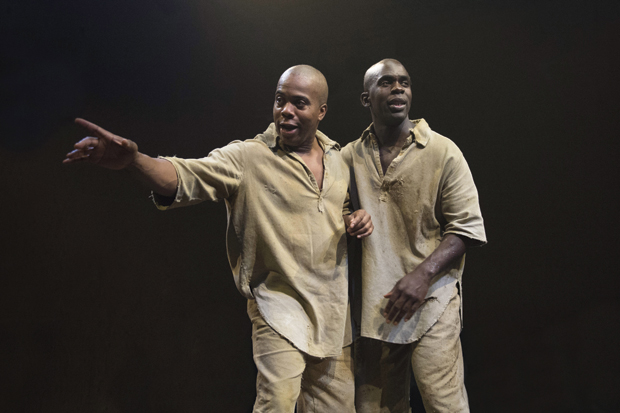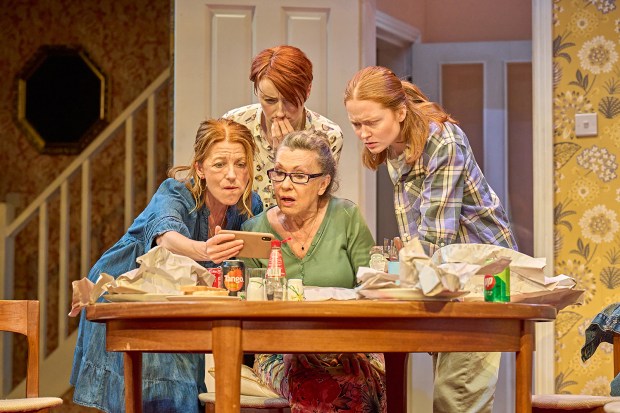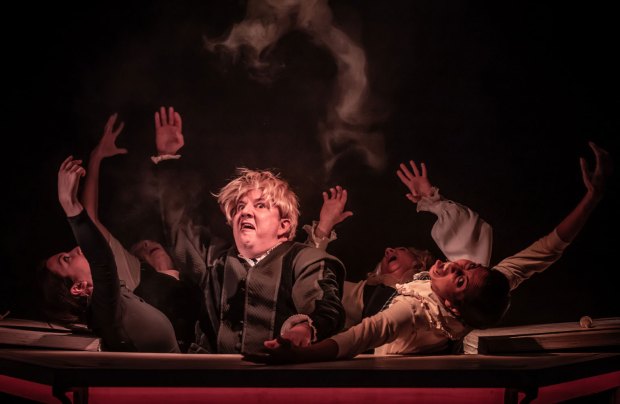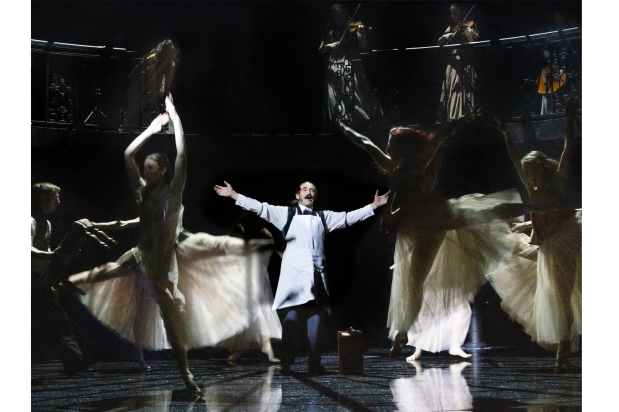Athol Fugard is regarded as a theatrical titan but I usually need a microscope to find any trace of greatness in his work. The Island is set in a South African prison camp in the 1960s. Two banged-up lags, John and Winston, are toiling in the noonday heat. The governor torments them with a Kafka-esque prank. They’re placed at opposite ends of a sandpit and given shovels and wheelbarrows. Each must amass a dune of gravel, which his colleague is forced to deplete. This backbreaking futility is supposed to grind their spirits into nothing. It fails. Released from punishment at sundown, they retreat to their cells where they express themselves with abandon.
They amuse each other with frolicsome monologues. They swap reminiscences about good old chums from home. They discuss great shows they’ve seen at the neighbourhood theatre. So keen are they on drama that they’re rehearsing Sophocles’ Antigone for a forthcoming production in the camp. (Yes, they had am-dram in South African prisons. Ex-cons supplied the evidence on which Fugard based his play.) The two lags bicker about the allocation of roles. Neither wants to play Antigone for fear of being ridiculed as effeminate. Much of this banter is lightweight and self-involved, and there’s no dramatic conflict because the characters are bosom pals and their freedom of action is severely limited.
Slowly — and everything in the play moves at a larval pace – we discover why the men wound up in the slammer. They burned their ID passes in front of a police station. Sentence: ten years. But hope glimmers on the horizon. John’s lawyers are mounting an appeal, and when he learns that his release is imminent, both characters are devastated. Winston is consumed with envy while John is beset with guilt and remorse. Suddenly the slowcoach drama stirs into life. The threat of separation puts both characters under enormous pressure and they respond to the crisis with powerful, muscular speeches.
But this teeny snatch of brilliance fades fast. The play relaxes into its final scene, which is plagiarised from Sophocles. John appears as Creon wearing a saucepan crown. Winston plays Antigone in a cantilevered bra made from knotted string and two drinking mugs. And how does the Theban tragedy relate to the men’s prison ordeal? Very hard to say. As if to underline the mismatch, the actors perform the tragedy like a circus sketch. Daniel Poyser, as Creon, glances knowingly at the audience in order to diminish his character’s dignity. And Jimmy Akingbola plays Antigone with a Kenneth Williams lisp, a John Inman shoulder drop and a Mae West bottom wiggle. This is a puzzling choice from a man who fears being mocked as homosexual. I shan’t be joining the Fugard idolators just yet.
At Park there’s a strange new play by Cherise Cross about insomnia. John, a sleep-deprived yuppie, lives in a flat plagued by unexplained bangs, whumps and cries. Bodiless voices echo around the room. And his alter ego lurks in the broom cupboard, popping out occasionally and striding around. John tries therapy. A flirty counsellor named Lisa introduces him to a handful of fellow sufferers. None of these wretches has slept a wink for months and yet they’re entirely untroubled by their condition. They never yawn or stretch. They express no fear of driving cars or operating machinery. They’re sanguine about dozing off while the bath overruns or the chip fryer bursts into flames and burns their home to a crisp.
Beneath these confused layers there’s a comedy of manners trying to escape. The therapist, Lisa, is secretly using her consultancy as a dating agency. She takes a shine to John but she’s constrained by her professional code of conduct from disclosing her feelings. Good idea for a romcom. But the writer bungs this juicy thought in the bin and lays on more bangs and whumps and echoey voices in the hope of creating ‘atmospheric theatre’.
The casting makes this weird play weirder still. John, played by Philip Nightingale, is a bald, skinny Londoner with a worried face and a safety-announcer’s diction. His alter ego (Robert Bradley) is a whopping great Glaswegian with a pole-vaulter’s swagger, a Gareth Bale hairdo and a voice that would terrify a sergeant-major. Mind you, I’m not absolutely certain that Bradley was playing an alter ego. The airless auditorium and the sombre lighting had a curious effect on us play-goers. A chap ahead of me nodded off for half an hour. The usherette, slumped by my side, emitted a few restful snuffles as well. And I suspect that I, too, slithered Lethe-wards during some early scenes of exposition. Amazing, really. An insomnia play that cures insomnia. And they say art changes nothing.
Got something to add? Join the discussion and comment below.
Get 10 issues for just $10
Subscribe to The Spectator Australia today for the next 10 magazine issues, plus full online access, for just $10.
You might disagree with half of it, but you’ll enjoy reading all of it. Try your first month for free, then just $2 a week for the remainder of your first year.














Comments
Don't miss out
Join the conversation with other Spectator Australia readers. Subscribe to leave a comment.
SUBSCRIBEAlready a subscriber? Log in